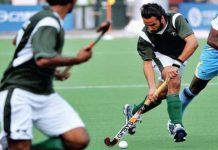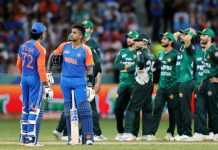By polls are already over and thus the process of general elections comes to an end. The by-election was significant in the sense that it produced some interesting results. Major political parties such as PML N, PTI and JUI (F) all had to face untoward situations as all these parties failed to re-gain some of their seats. The PTI perhaps suffered the most as seats of Peshawar and Mianwali vacated by Imran Khan were lost, primarily because of bad choice of candidates plus some internal cracks.
In Peshawar PTI had to eat a humble pie because its candidate could not put up any potential resistance viz a viz ANP candidate Ghulam Ahmed Bilour. As admitted by the PTI top leadership that it could not find a suitable candidate for that area, ANP on the contrary was able to grab support from PML N, PPP and JUI F. So it was basically a bout between PTI versus all other political parties.
Then, the low turnout also played a central role in PTI’s defeat in Peshawar. PTI, we can say, could not mobilize its die-hard supporters to come out and vote for it, despite the fact that all these abstaining voters still had sympathies for Pakistan Tehreek e Insaf. A greater turnout could have posed some serious problems for the ANP candidate. PTI leadership has taken a strong view of this situation and issued some show-cause notices to provincial leaders as well.
In Mianwali, PTI lost simply because of its internal difference because turnout in this constituency was not low as compared with other constituencies. The original PTI candidate here was knocked-out on the degree issue therefore the covering candidate had to bear the brunt of PML N nominee. This happens to be Imran Khan’s native constituency that is why in general elections he won with a thumping majority and he was sure people will vote for PTI candidate in the same spirit. But his calculation proved wrong.
I think he should have vacated Rawalpindi seat instead of Mianwali the reasons being this that as compared with Mianwali, which happens to be a backward area, Rawalpindi comprises education people, who would have cast their votes rather independently and free from any political and other pressures. Since PTI’s main vote bank comprises educated and affluent class therefore it could have performed well here. The Shaikh Rashid factor could have been an added advantage.
PTI nevertheless performed well in Islamabad’s NA 48 where Asad Umar defeated his PML N rival rather easily, though turnout in this constituency remained quite low. Javed Hashmi got over 72,000 votes in general elections while Asad Umar could get only 48,000. PTI’s win in this particular constituency was quite evident as NA 48 consists of highly educated people – literacy level in this constituency is more than 90 per cent – and then it happens to be an area populated by middle and upper middle class.
PML N did well and got almost all its seats plus seat won by PTI. The only blow that it had to face was in Rajan Pur constituency where seat vacated by sitting Chief Minister Shahbaz Sharif was snatched away by PTI. PML N has termed this defeat as a result of internal rifts among various factions of PML N Rajan Pur chapter. Apart from that, PML N lived up to the expectations by winning all its seats.
JUI F perhaps appears to be in a fix as the by polls results have not been encouraging for it. JUI Chief Maulana Fazal ur Rehman vacated three seats out which one has already been won by PTI while results of two have been withheld and election in the third constituency was postponed because of security issues. On all these three seats PTI candidates had performed quite well and are in a position to win these three seats.
Here election commission role also needs to be applauded for holding free and fair by elections mainly because the man now sitting at the top – the chief election commissioner—took decisions on the spot. And more importantly, those decisions were implemented as well.
In a nutshell, the recent by elections will not change the composition of the assemblies. However people have now started whispering as to why candidates are allowed to contest on more than one seat because the drill of by polls costs the national exchequer dearly.
Though presently it looks next to impossible nevertheless in future if a proposal comes up for discussion that candidates should not be allowed to contest on more than one seat, many people are expected to support this proposal.











